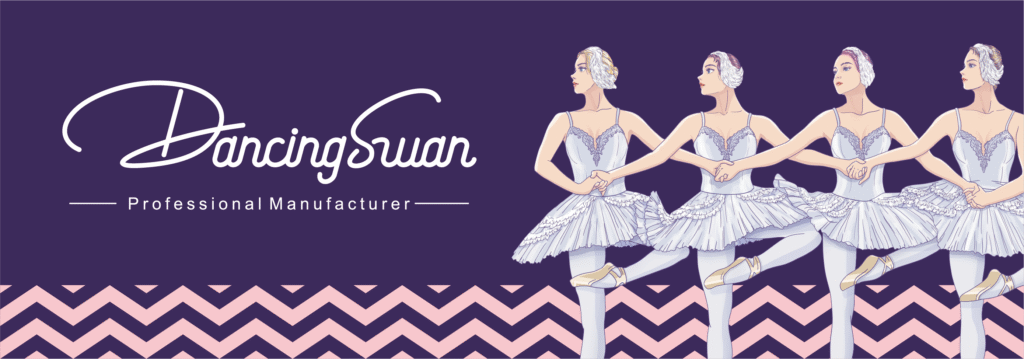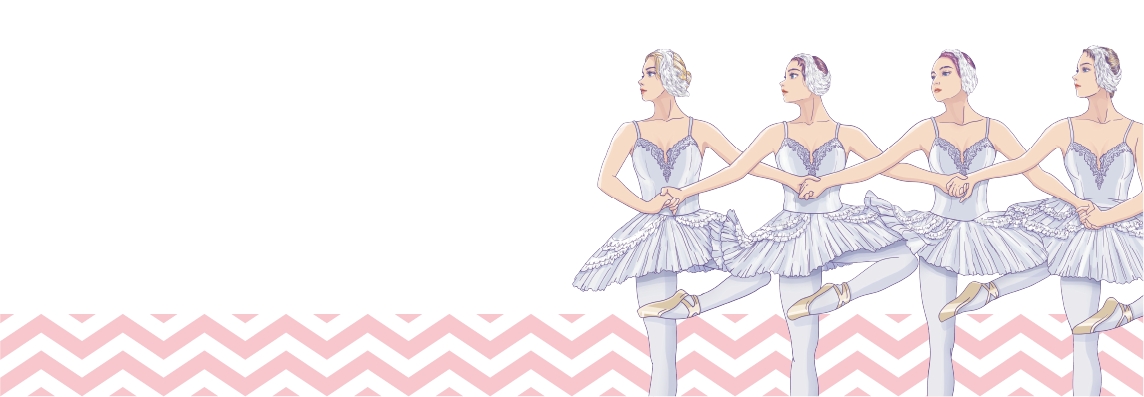If your eyelashes itch frequently, you’re not alone—this common discomfort can stem from various causes, ranging from allergies to infections. An itchy lash line may feel irritating, prompting you to rub your eyes, which can worsen the problem. Understanding why your eyelashes itch helps identify the right treatment and preventive measures.
Several factors contribute to eyelash itching, including allergic reactions to cosmetics, eyelid inflammation (blepharitis), or dry eyes. Even tiny parasites like demodex mites can infest lash follicles, causing persistent irritation. Environmental allergens, contact lens misuse, or leftover makeup residue may also trigger discomfort.
While mild cases can be managed with home remedies like cold compresses or gentle cleansers, persistent symptoms may require medical attention. Redness, swelling, or vision changes signal the need for a professional evaluation. By recognizing the root cause of your itchy eyelashes, you can take proactive steps toward relief and maintain healthier, more comfortable lashes.
This guide explores common reasons behind eyelash itching, effective home treatments, and when to seek expert advice. Learn how to soothe irritation and protect your lashes from recurring discomfort.
Why Do My Eyelashes Itch? Common Causes Explained
An itchy eyelash line can be irritating and uncomfortable, often causing the urge to rub your eyes—which may worsen the issue. Understanding the root causes can help you find relief and prevent further irritation. Below, we explore the most common reasons why your eyelashes might be itching.
1. Allergic Reactions
Allergens like pollen, pet dander, or dust can trigger itchiness along the lash line. Cosmetic products such as mascara, eyeliner, or false eyelash glue may also contain ingredients that cause allergic reactions. If the itchiness appears after using a new product, discontinue use and consult a dermatologist.
2. Blepharitis (Eyelid Inflammation)
Blepharitis is a common condition where the eyelids become inflamed, often due to bacterial overgrowth or skin conditions like rosacea or seborrheic dermatitis. Symptoms include redness, flaking, and persistent itching at the base of the eyelashes. Proper eyelid hygiene, such as using a warm compress and gentle cleansers, can help manage the condition.
3. Dry Eyes
When your eyes don’t produce enough tears or the tear film evaporates too quickly, dry eye syndrome can develop. This can lead to itchiness, burning, and irritation around the lashes. Using artificial tears or a humidifier may alleviate symptoms, but consult an eye doctor for persistent dryness.
4. Demodex Mites
These tiny parasites naturally live on human skin, including the eyelash follicles, but an overpopulation can cause itching, redness, and crusting. If demodex mites are the issue, a doctor may prescribe medicated ointments or cleansers to reduce their numbers.
5. Contact Lens Irritation
Wearing contact lenses for extended periods or not cleaning them properly can lead to irritation and itchiness around the lash line. Allergies to lens solutions or protein buildup on lenses may also contribute to discomfort. Follow proper lens hygiene or switch to daily disposables if needed.
6. Conjunctivitis (Pink Eye)
Bacterial, viral, or allergic conjunctivitis can cause eyelid swelling, itching, and discharge along the lash line. If you suspect pink eye, avoid rubbing your eyes and seek medical advice, as some forms are contagious.
7. Eye Makeup Residue
Leaving mascara or eyeliner on overnight can clog hair follicles and trap bacteria, leading to itchiness and potential infections. Always remove makeup thoroughly before bed using a gentle, oil-free remover.
When to See a Doctor
If your eyelash itchiness persists, worsens, or is accompanied by pain, swelling, or vision changes, consult an eye specialist. Early treatment can prevent complications and provide long-term relief.
By identifying the cause of your itchy eyelashes, you can take the right steps to soothe irritation and maintain healthy, comfortable eyes.
How to Relieve Itchy Eyelashes at Home
Itchy eyelashes can be uncomfortable and distracting, often caused by allergies, dryness, infections, or irritants like makeup and pollution. Fortunately, several home remedies can help soothe the irritation effectively. Below are practical ways to relieve itchy eyelashes at home.
1. Apply a Cold Compress
A cold compress can help reduce inflammation and numb the itchiness. Simply wrap a few ice cubes in a clean cloth or use a chilled gel eye mask. Gently place it over your closed eyelids for 5–10 minutes. This can provide immediate relief from itching and swelling.
2. Use Hypoallergenic Eye Wipes
If your itchiness is due to allergens or debris, gently clean the area around your eyelashes with hypoallergenic eye wipes. These are designed to be mild and won’t irritate sensitive skin. Avoid rubbing your eyes, as this can worsen the irritation.
3. Try Warm Compresses for Oil Gland Issues
If the itchiness is caused by blocked oil glands (common in blepharitis), a warm compress can help. Soak a clean washcloth in warm water, wring it out, and place it over your closed eyes for a few minutes. The warmth helps unclog the glands and reduces irritation.
4. Use Aloe Vera Gel
Aloe vera has soothing and anti-inflammatory properties. Apply a small amount of pure aloe vera gel around the eyelash area (avoid direct contact with eyes) to relieve itching and moisturize the skin. Rinse it off after 10–15 minutes if needed.
5. Keep the Area Moisturized
Dryness can worsen eyelash itchiness. Use a fragrance-free, hypoallergenic moisturizer or natural oils like coconut oil to hydrate the skin around your eyes. Apply sparingly to avoid clogging pores.
6. Avoid Triggers
If allergies are the cause, identify and minimize exposure to triggers like pollen, dust, or pet dander. Keep windows closed on high-pollen days, wash your face after being outdoors, and consider using an air purifier.
7. Remove Makeup Properly
Leaving makeup on overnight can clog hair follicles and cause irritation. Always remove eye makeup with a gentle cleanser before bed. Avoid harsh products containing alcohol or fragrances.
8. Try Over-the-Counter Antihistamine Drops
For allergy-related itchiness, over-the-counter antihistamine eye drops may help relieve symptoms. Consult a pharmacist or doctor before using them to ensure they are safe for your condition.
When to See a Doctor
If your symptoms persist despite home treatments, or if you experience redness, swelling, discharge, or vision changes, consult a healthcare provider. These could be signs of an infection or a more serious condition requiring medical attention.
By following these simple remedies, you can reduce eyelash itchiness and keep your eyes comfortable at home. Always be gentle with the delicate skin around your eyes to avoid further irritation.
What Causes Persistent Eyelash Itching and When to See a Doctor
Persistent eyelash itching can be an annoying and sometimes concerning issue. While occasional itching is normal, frequent or severe discomfort may indicate an underlying problem. Understanding the possible causes—and knowing when to seek medical attention—can help you address the issue effectively.
Common Causes of Eyelash Itching
The following are some frequent reasons why your eyelashes might itch:
Blepharitis
Blepharitis is an inflammation of the eyelids, often caused by bacterial overgrowth, oily gland dysfunction, or skin conditions like dandruff. This leads to redness, swelling, and persistent itching along the lash line.
Allergic Reactions
Eye makeup, contact lens solutions, or environmental allergens like pollen can trigger itching. If the irritation coincides with using a new product, an allergy may be the culprit.
Dry Eyes
Insufficient tear production or poor tear quality can cause dryness and irritation around the lashes, leading to persistent itching and a gritty sensation.
Eyelash Mites (Demodex)
Tiny mites called Demodex can live in hair follicles, including eyelash roots. While usually harmless, an overgrowth can cause itching, redness, and crusting.
Contact Dermatitis
Harsh chemicals from soaps, cosmetics, or even exposure to irritants like chlorine can inflame the skin around the eyes, causing itchiness.
Skin Conditions
Eczema, psoriasis, or seborrheic dermatitis may affect the eyelids, leading to flaky skin, itching, and discomfort.
When to See a Doctor
While mild eyelash itching can often be managed at home, certain signs warrant professional medical attention. Consult a doctor if you experience:
- Persistent itching that doesn’t improve with home remedies.
- Severe redness, swelling, or pain around the eyes.
- Vision changes such as blurriness or light sensitivity.
- Discharge like pus or excessive mucus.
- Eyelash loss or unusual crusting along the lash line.
- Spreading rash or sores near the eyes.
Early diagnosis and treatment can prevent complications, especially if the cause is an infection or chronic condition. An eye specialist (ophthalmologist or optometrist) can recommend appropriate treatments, such as medicated drops, ointments, or lifestyle adjustments.
Prevention Tips
To minimize eyelash irritation, consider these preventive measures:
- Avoid rubbing your eyes, as this can worsen irritation.
- Replace eye makeup regularly and choose hypoallergenic products.
- Clean your eyelids gently with a mild cleanser or diluted baby shampoo.
- Use artificial tears if you have dry eyes.
- Remove contact lenses before sleeping and clean them properly.
If symptoms persist or worsen despite these measures, don’t hesitate to seek medical advice. Your eye health is crucial, and timely treatment can prevent further complications.
Best Practices to Prevent Itchy Eyelashes for Healthy Lashes
Itchy eyelashes can be uncomfortable and may indicate underlying irritation, allergies, or poor lash hygiene. Fortunately, you can prevent discomfort and maintain healthy lashes by following these best practices.
1. Keep Your Lashes Clean
Dirt, oil, and makeup residue can accumulate on your lashes, leading to irritation and itchiness. Wash your eyelashes gently with a mild, fragrance-free cleanser or baby shampoo to remove debris without stripping natural oils. Avoid rubbing your eyes harshly, as this can damage lash follicles.
2. Remove Makeup Before Bed
Sleeping with eye makeup on can clog hair follicles and cause irritation. Always use a gentle, oil-free makeup remover to cleanse your lashes and eyelids before sleeping. Micellar water or specially formulated eye makeup removers work well without causing dryness.
3. Avoid Harsh Products
Some mascaras, eyeliners, and lash serums contain irritants like fragrances, parabens, or alcohol. Opt for hypoallergenic and ophthalmologist-tested products to minimize the risk of itching and allergic reactions. If you notice irritation, discontinue use immediately.
4. Be Gentle with Lash Extensions
If you wear lash extensions, ensure they are applied by a certified technician using high-quality adhesive. Clean them regularly with a lash-safe cleanser to prevent buildup of bacteria and irritants. Avoid picking or pulling at extensions, as this can damage natural lashes and cause itching.
5. Moisturize Your Eyelids
Dry skin around the eyes can contribute to itchy lashes. Apply a fragrance-free, hypoallergenic moisturizer or a small amount of petroleum jelly to your eyelids to keep the area hydrated. Avoid applying products too close to the lash line to prevent irritation.
6. Replace Eye Makeup Regularly
Old or expired makeup can harbor bacteria and fungi, leading to infections and itchiness. Replace mascara every 3 months and eyeliners every 6–12 months. Avoid sharing eye makeup to prevent cross-contamination.
7. Manage Allergies Effectively
If you have allergies, antihistamines or allergy-friendly eye drops can help reduce itching. Identify and avoid allergens like pollen, dust, or pet dander. A cool compress can also soothe irritated eyelids.
8. Stay Hydrated and Eat a Balanced Diet
Hydration and nutrition play a key role in lash health. Drink plenty of water and consume foods rich in vitamins A, C, and E, biotin, and omega-3 fatty acids to support strong, itch-free lashes.
9. Avoid Excessive Eye Touching
Frequent rubbing can introduce bacteria and worsen irritation. If your eyes itch, use a clean tissue or damp cloth to pat the area gently instead of rubbing.
10. Consult a Professional If Needed
Persistent itching, redness, or swelling may indicate an infection or condition like blepharitis. If home remedies don’t help, see an eye doctor for proper diagnosis and treatment.
By following these best practices, you can keep your eyelashes healthy, strong, and free from discomfort.

